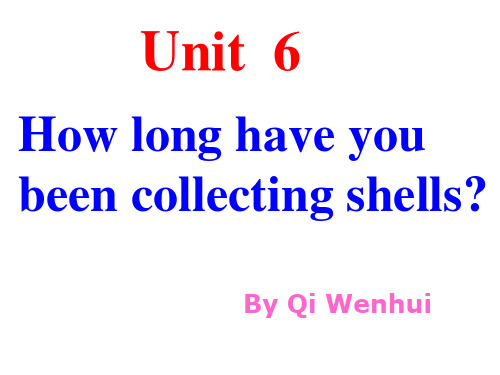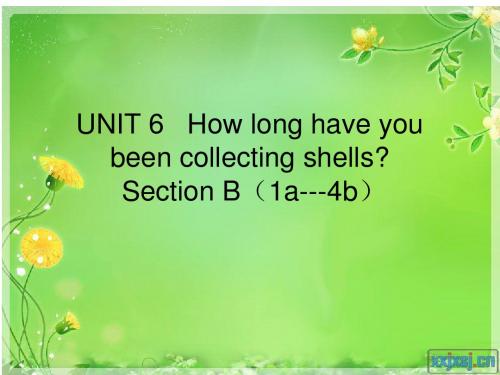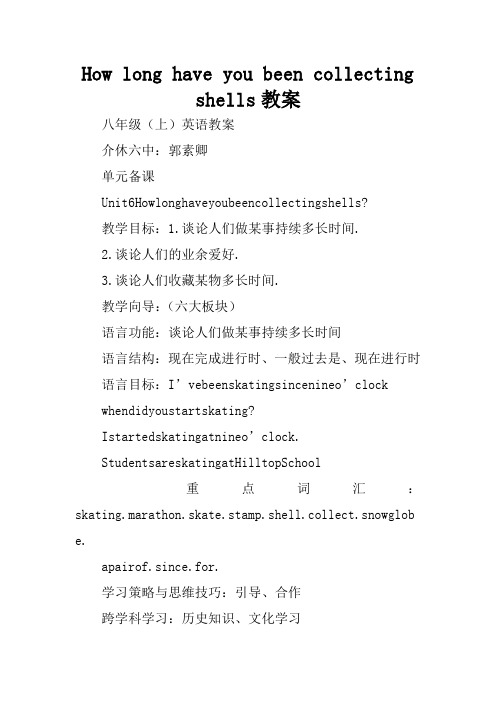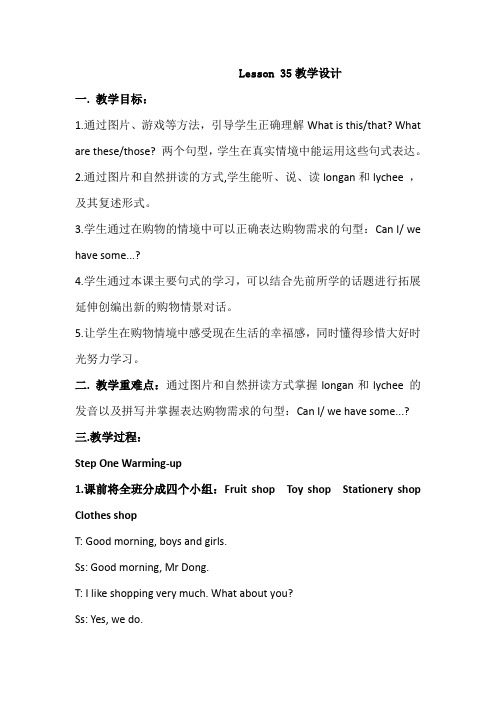Unit 6 How long have you...教案s
苏教牛津译林版三年级英语下册Unit2Inthelibrary第1课时教案单元测试(A卷)

苏教⽜津译林版三年级英语下册Unit2Inthelibrary第1课时教案单元测试(A卷)In the library单元测试(A卷)⼀、找出划线部分读⾳与其他三个不同的⼀项(5分)⼆、词汇(15分)A. 按括号内要求写出相应单词(5分)1.sad(副词) ____________ 2.pay(过去式)____________3.shelf(复数)____________ 4.now(名词)____________5.spea(过去分词)____________B. 英汉互译(10分)1.付款,赔偿_______________________________________________________2.come up with anidea______________________________________________3.放下______________________________________________________________ 4.get…bac_________________________________________________________ 5.过去常常_________________________________________________________ 6.picup_________________________________________________________ 7.使我⾼兴_________________________________________________________ 8.thinof_________________________________________________________9.⽬前,此刻_________________________________________________________ 10.sooner orlater______________________________________________三、选择填空(15分)1.I have never seen the man ____________.A. agoB. just nowC. beforeD. late2.____________ he ____________ the doctor the day before yesterday?A. Have; seenD. Does; see3.Mr. Smith is new here. So he has ____________ friends.A. fewB. a fewC. littleD. a little4.How much did you ____________the dictionary?A. taeB. costC. spendD. pay for5.My cup is empty. Who ____________ all my tea?A. drinsB. had drunC. has drunD. dran6.I've ____________ my dictionary. Have you ____________ it anywhere?A. losed; sawB. losed; seenC. lost; seenD. lost; saw7.“Uncle Wang, have you ever ____________ to Beijing?”A. areB. wereC. wentD. been8.Mr. Wu never drins wine, ____________?A. did heB. does heC. didn't heD. doesn't he9.How long have you ____________this boo?A. borrowedD. ept10.—Can I ____________ this magaine?—Yes, but you mustn't____________ it to others.A. lend; borrowB. borrow; eepC. eep; lendD. borrow; lend11.—Where is Tom? —He ____________Shanghai. He ____________ there two days ago.A. went; has goneB. has gone to; wentC. has been to; has gone toD. has been to; went12.—You haven't been to the Great Wall, have you? —____________. It's great!A. Yes, I haveB. Yes, I haven'tC. No, I haveD. No, I haven't13.—____________ you ____________ your homewor yet? —Yes, I ____________ it half an hour ago.A. Have; finished; finishedB. Did; finish; finishC. Have; finish; finishedD. Did; finish; finished14.Hurry up! We'd better ____________late for class.A. don't beB. not beC. aren'tD. not to be15.I don't now which bus ____________.A. taeB. tooC. to taeD. bring四、⽤动词的适当形式填空(10分)1.Grandma ____________ (borrow) a history boo from the library last wee.2.__________“Have you ____________ (find) the ey to your bie?”________“No, not yet.”3.Don't ____________(worry). Everything ____________(be) better.4.If it ____________ (not rain) tomorrow, they ____________ (have) a picnic in the par.5.Each of us ____________ (have) an English-Chinese dictionary.6.— ____________ you ____________ (wash) your clothes, Lily?—Yes. I ____________ (wash) it two hours ago.五、根据汉语完成句⼦(10分)1.李⽼师过去是位篮球队员,现在是教练了。
牛津译林版七年级上册英语 Unit6 复习教案

七年级牛津版英语Unit6复习教案(W&G)教学目标:复习keep、like等重点单词和词组;复习可数名词与不可数名词的用法重点难点:重点单词和词组一、知识点解析1.keep保持课本例句:An apple a day keeps the doctor away。
用法解析:keep,vt,意为“保持”。
keep后常跟doing,即keep doing,意思是“一直做某事”。
例:Don’t keep talking .不要一直讲话。
I’m sorry to keep you waiting for me .抱歉让你一直等我。
An apple a day keeps the doctor away.一天一苹果,医生远离我。
用法拓展:keep还可以作系动词,后跟形容词,如keep quiet/ healthy 等。
keep+名词+形容词(使什么东西处于什么状态)例:We should keep our classroom clean保持我们教室干净。
Keep作动词还有“保留,保存”的意思。
例:How long can I keep the book ?这本书我可以保存(借)多久?Keep sb. from doing sth.阻止某人做某事。
例:We should keep kids from running in the street.常用搭配:keep…away或keep away from使…远离keep up with 跟上keep in touch 与……保持联系keep an eye on 照看,留意keep diaries记日记例题训练:一天一个苹果,不用去诊所。
答:An apple a day keeps the doctor away.2.lifestyle生活方式课本例句:food and lifestyle用法解析:lifestyle,n,可数,三会单词“生活方式”a healthy lifestyle拥有一个健康的生活方式different lifestyles 不同的生活方式例题训练:改变不好的生活方式似乎是很重要的。
Unit6 03 How long have you been collecting shells

Reading – Section A 3a
1. Why are students skating?
To raise money for charity.
2. How much does each student raise for every hour they skate? 3. How long has the skating marathon been going?
用for和since填空 for和since填空
since 1.They have been learning Chinese _____ they came to China. for 2. I haven’t seen her _____ a long time. since 3. He has been living here _____ 2001. 4. She has been doing her homework ____ for two hours. since 5. It’s 5 years _____ we left school. 6. – How long has Mary been a teacher? – _____ two years ago. Since
How long have they been playing soccer? They have been playing soccer
for 45 minutes.
since 45 minutes ago.
How long have they been swimming? They have been swimming for an hour. since an hour ago.
Grammar focus
UNIT+6+++How+long+have+you+been+collecti...

Summary
Task 1: Sum up what they have learned today (1) New words: (2) Key structures. I collect … because … How many do you have? How long have you been collecting that? For about … Years./since … years ago (3) Expressions. thanks for send sb sth in fact run out of anyone else by the way
My hobby is . I've been collecting them since / for , and I have now. Collecting makes me happy. I am happier when .I store in . My hobby opens up my eyes, it can help me with my .
collecting snow globes for seven years 226 should stop, run out of room to store them The first one a birthday cake snow globe A gift from Jack a snow globe of the monster Globes with animals one with bears, one with penguins She wants to start a snow globe collectors’ club Ellen's hobby How long How many Mom's idea
How long have you been collecting shells教案_1

How long have you been collectingshells教案八年级(上)英语教案介休六中:郭素卿单元备课Unit6Howlonghaveyoubeencollectingshells?教学目标:1.谈论人们做某事持续多长时间.2.谈论人们的业余爱好.3.谈论人们收藏某物多长时间.教学向导:(六大板块)语言功能:谈论人们做某事持续多长时间语言结构:现在完成进行时、一般过去是、现在进行时语言目标:I’vebeenskatingsincenineo’clockwhendidyoustartskating?Istartedskatingatnineo’clock.StudentsareskatingatHilltopSchool重点词汇:skating.marathon.skate.stamp.shell.collect.snowglob e.apairof.since.for.学习策略与思维技巧:引导、合作跨学科学习:历史知识、文化学习教学重点:现在完成进行时态的构成及应用教学难点:现在完成时与现在完成进行时的区别教学方法:先学后教、当堂训练学习方式:自主、合作学习情感目标:通过对收藏的有关讨论,培养学生优良的生活习惯。
使学生学会表达自己的爱好和持续的时间及有多少收藏品。
重点词汇及短语:since.for.raise.collect.runoutof.foreigner.TheolympicGames.beinterestedin.wouldliketodosth.apairofmorethan.goskating.quitefarfrom.enioydoingsth.课前任务:Task1.请同学们回家调查家庭成员持续做某事的时间,课前以小组为单位进行汇总,选出做某事最长时间的人。
最后再选出班里做某一事情最长时间的人。
Task2.每个学生将自己的爱好及出现的时间写出来,并询问同伴的爱好及持续的时间。
Unit6(Lesson35人教精通版五年级上册教案

Lesson 35教学设计一. 教学目标:1.通过图片、游戏等方法,引导学生正确理解What is this/that? What are these/those? 两个句型,学生在真实情境中能运用这些句式表达。
2.通过图片和自然拼读的方式,学生能听、说、读longan和lychee ,及其复述形式。
3.学生通过在购物的情境中可以正确表达购物需求的句型:Can I/ we have some...?4.学生通过本课主要句式的学习,可以结合先前所学的话题进行拓展延伸创编出新的购物情景对话。
5.让学生在购物情境中感受现在生活的幸福感,同时懂得珍惜大好时光努力学习。
二. 教学重难点:通过图片和自然拼读方式掌握longan和lychee 的发音以及拼写并掌握表达购物需求的句型:Can I/ we have some...? 三.教学过程:Step One Warming-up1.课前将全班分成四个小组:Fruit shop Toy shop Stationery shop Clothes shopT: Good morning, boys and girls.Ss: Good morning, Mr Dong.T: I like shopping very much. What about you?Ss: Yes, we do.T: New Year’s Day is coming. Let’s go shopping, shall we?(利用头脑风暴的方式播放shopping mall的音乐相册呈现四个商店的图片以及本课中的主线人物Longan,帮助学生快速复习单数和复数名词)Ss: Good idea!(引导学生进行快速问答,活跃课堂气氛感知本课要学习的内容)E.g:(利用头脑风暴引导学生进行男女生对抗赛复习单复数)Boys:What is this?Girls: It is an apple.Boys: What are these?Girls: They are oranges.T:Look! Boys and girls. We can four shops in the shopping mall. There are four shops in our class.,too .What are they?Ss: They are fruit shop, toy shop, stationery shop and a clothes shop. T: Good! Let’s make our shopping mall, OK?(告知学生进行竞争的规则:认真回答问题可以得到一枚sticker 用于制作自己的shop)SS: OK!2.引入本课的主线人物Longan出示本课的主线人物Longan的照片。
中职英语基础模块2(新课标版)教案:unit6tellmewhenthepainstarted
Unit 6 T ell me when the pain started.(第一课时教学设计)一、学情分析本单元是教材《英语2》(基础模块高教版)第六单元,主要话题为看病就医。
教师可通过本单元的听、说、读、写各种教学活动,一方面帮助学生掌握正确表达与英语学习相关的词汇与句型,另一方面引导学生结合自身的情况反思自己的英语学习,针对自身的学习问题选择有效的学习策略。
二、教材分析1. 教学内容具体内容为:有关常见疾病的名称和描述病情的句式、就医时医生和病人之间的有关的对话。
2. 教学重点、难点⑴教学重点能够听懂就医的常用语,掌握叙述病症、接受医生建议的常用表达方式。
⑵教学难点有关就医的词汇和句型。
三、教学目标1.知识目标(1)帮助学生掌握以下词汇:stomachache, toothache, fever, cough, headache, back pain, runny nose, sore throat, appointment等。
(2)帮助学生掌握就医时使用的基本句型,如:What’s wrong with you?I’ve a headache / a sore throat / a runny nose / fever / cough, ect.How long have you felt this way?I feel cold. I think I have a fever.I’d like to make an appointment with the doctor.The doctor is free at ….Will … be OK for you?Take this medicine … times a day. / Stay in bed for …. / Y ou should have a good rest.Thank you very much.四、教学步骤Step One Lead-in (7 mins)1. The teacher greets the Ss with the following sentences:How are you, boys and girls?I didn’t sleep well last night.I’ve had a cold because ….I’m not myself today.Explain I’m not myself today and get the Ss to say something about themselves. Step T wo Listening and speaking (30 mins)1. Before listening, ask the Ss to look at the picture and answer the question: What’s wrong with the boy in the picture?2. Activity 3: Listen and answer the questions.Listen to the tape and answer the questions. Listen again and then check the answers.3. Activity 4: Listen again and complete the card.4. Activity 5: Read and underline.Read aloud after the tape and then practice the dialogue in pairs. Get some pairs to act it out.Underline the sentences about illness and check in class.Step Three Summary (6 mins)Make a short summary of what we’ve learned today.(1) Useful expressions: have a stomachache / toothache / fever / cough / headache / back pain / runny nose / sore throat, make an appointment, etc.(2) Everyday English:What’s wrong with you?I’ve a headache / a sore throat / a runny nose / fever / cough, ect.How long have you felt this way?I feel cold. I think I have a fever.I’d like to make an appointment with the doctor.The doctor is free at ….Will … be OK for you?Take this medicine … times a day. / Stay in bed for …. / Y ou should have a good rest.Step Four Homework (2 mins)1. Practice the dialogue in pairs and recite it..2. Make up a dialogue with your partner.五、板书设计Unit 6 T ell me when the pain started.(第二课时教学设计)一、教材分析1. 教学内容具体内容为:阅读有关描述病人病情的小短文,填写病人病历,并根据病情编写医生和病人之间的对话;撰写英文病假条。
鲁教版期八年级上册 Unit6 How long have you been collecting shells PPT课件
Zhang Yining 1981: be born
1987 ~ 2007: play ping-pong
She started playing ping-pong in 1987. How long has she been playing ping-pong? She has been playing ping-pong for 20 years.
Are you still running now? How long have you been running?
B: I’ve been running for one hour.
Now:3:00pm
Start:2:00pm
Start:1:00pm
Start:1:00pm
A: When did he start studying?
Activity1a Discuss these questions
• How long did you sleep last night…?
• When did you start class today? • How long have you been in class today?…
A: When did you start running?
dancing marathon running marathon skating marathon
1b.Listen. A reporter is talking to the participants in a skating marathon. Fill in the chart below.
Homework:
Write a small introduction about your new friend using the new sentence we learn today.
译林版英语八年级下册Unit 2 Grammar教案
e.g. Mr Dong has lived here for many years.
Mr Dong has lived her since he was born.
Some verbs, such as come, go, buy and leave, can be used in the present perfect sense, but they cannot be used with for or since in positive statements.
4. My parents __________ to Xi’an and they’ll stay there for a week.
5. Daniel won’t be with us at the party. He _________ to Shanghai.
A2. Daniel and Millie are chatting. Complete their conversation. Use the correct forms of the verbs in brackets.
Example
begin/start
have/has been on
The film has been on for 20 minutes.
finish/stop
have/has been over
The parade has been over for hours.
come/go/arrive
新课标人教版八年级英语下册Unit 6 How long have you been collec
Unit 6 How long have you been collecting shells?重难点解析1. How long have you been in class today?你们今天上了多长时间的课?(1)how long 意为“多久”。
如:How long are you staying in Hong Kong?你将在某某呆多久?How long did you do your homework?你做作业做了多久了?(2)how 的相关词组:how much 多少(钱)how many 多少how far多远how often 多久一次how old多大how soon 多久以后注:how much 可对不可数名词的数量进行提问;还可对价格提问。
how many 提问可数名词的数量。
2.A:Alison,how long have you been skating?艾丽森,你滑冰已经多长时间了?B:I have been skating for five hours.我已经滑了五个小时。
for表示时间的持续,后面加时间段,表示一段时间,多与带数词的名词连用,其谓语需用延续性动词。
We have been learning English for two years.我们学英语已经两年了。
I slept for eight hours last night.我昨晚睡了八个小时。
注:在现在完成时中,若动词为非延续性动词,与for短语连用时,要转换为延续性动词。
例如:borrow—keep;buy—have;arrive—be here;e back—be back;get up—be updie—be dead;begin—be on3. since表示“自从过去某一时间点以来”,后面接点时间,强调动作或状态一直延续到现在,一般用现在完成时或现在完成进行时。
例如:I have been skating since eight o’clock.自从八点开始,我就已经滑冰了。
- 1、下载文档前请自行甄别文档内容的完整性,平台不提供额外的编辑、内容补充、找答案等附加服务。
- 2、"仅部分预览"的文档,不可在线预览部分如存在完整性等问题,可反馈申请退款(可完整预览的文档不适用该条件!)。
- 3、如文档侵犯您的权益,请联系客服反馈,我们会尽快为您处理(人工客服工作时间:9:00-18:30)。
Unit 6How long have you been collecting shells?
第一课时
一、教学内容:Section A: 1a-1c
二、教学目标:
1.学会谈论自己做某事持续的时间长度。
2.学会就上述问题向别人进行询问。
3.通过谈论自己喜爱的运动.学会for和since的用法。
三、教学重点难点:
重点:词汇、语法、句型
(1)词汇: collect shell marathon skate since for
(2)语法:现在完成进行时:表示“从过去开始一直持续到现在,有可能还要持续下去的动作”。
我们用下面的句式来表示这一概念:主语+ have / has been + 现在分词
(3)重点句型::How long have you been skating? I’ve been skating since nine o’clock.When did you start skating? I started skating at nine o’clock.
区分“主语+ have / has been + 现在分词”和“主语+ 动词过去式”这两个句式的不同点及熟练掌握这两个句式的用法。
难点:能够运用现在完成进行时谈论自己喜爱的运动及持续时间。
四、课前准备:多媒体课件、录音机、表格。
五、教学手段:多媒体教学。
六、教学过程:
(1)出示课题
带读课题中的新单词:collecting 、shells
(2)导入新课.
1.出示图片:邓亚萍,陈露
复习一般过去时:
邓亚萍: How long did Deng Yaping play table tennis?
She played table tennis for 19 years.
陈露:How long did Chen Lu skate ?
She skated for 17 years.
总结句型:一般过去时:主语+v-ed
2.展示图片:姚明.
引出新句型:How long has Yao Ming been playing basketball?(现在完成进行时)
提问学生:when did Yao Ming start playing basketball?
共同了解:Yao Ming’s sports life(姚明的职业运动生涯)
在此同时,对出现的新单词:since进行带读,练习.并引导学生注意一般过去时与新句型的差异.对出现的三个句子进行总结:
前两幅图片为一般过去时,后一幅图片为现在完成进行时.通过对比可以发现.两者的句型分别为: 主语+v-ed.
主语+have/has+been+现在分词
引出概念:现在完成进行时: 动作从过去某一时间开始一直延续到现在, 并且有可能持续下去.
3.1b听力训练.共分为四个步骤:
①听录音
②检查答案
③跟读.对其中出现的新单词:marathon着重进行讲解.让学生了解马拉松的由来:马拉松运动起源于公元前490年的古希腊。
相传,希腊人和波斯人在希腊的马拉松镇进行了一场战争,希腊人取得了胜利。
为了把胜利的消息送到雅典,派了一个名叫菲力比斯的战士,从马拉松一直跑到雅典。
他到达目的地时精疲力尽,报告完胜利的消息后就死了。
为了纪念菲力比斯,1896年的第一届现代奥林匹克运动会上,举行了从马拉松镇到雅典的长跑比赛,定名为马拉松赛。
④然后进行组对训练.
两人一组分别扮演记者和Alison 掌握句型,强化口语.
Sa: How long have you been skating ?
Sb:I’ve been skating s ince I was seven years old.
(可根据情况进行男女生角色扮演朗读或全班齐读.)
4.观看视频:刘艳--女子花样滑冰(六分钟)
提问:How long has she been skating?
对新句型再一次进行巩固训练.
5.小组活动:发给学生表格, 向学生布置任务:在表格中写出自己的爱好及持续的时间。
调查你周围的学生的喜爱的运动是什么?什么开始这项运动,持续了多久时间?(同学们可参照示例)在活动结束后抽查几位同学进行对话.
6.练习:
一般过去时与现在完成进行时的区别,以及since和for的用法.
1 __B_ did you first skate?----Two years ago.
A. What
B. When
C. Why
D. How
2.Mr.Li__A_ swimming for 3 hours,and his son __ _ an hour ago.
A.has been, started
B. have started, has started
C. started, started D .has started, has started
3. Lana has been running _for_15 minutes
4. Tom has been sleeping _since_ 9:00.
5. – How long has Mary been a teacher?
– _Since_ two years ago.
七、总结:
现在完成进行时:现在动作从过去某一时间开始一直延续到现在, 并且有可能持续下去时,我们常常用以下句型来表示:
for +一段时间
have / has been + 现在分词+ since +过去的时间点
since+从句
八、作业布置
Make a conversation:
What sport do you play?
How long have you been …ing …?
I have been …ing…for/since….
九、板书:
Unit6 How long have you been collecting shells? 重点词汇:
collect
shell marathon
skate since for
重点句型:
一般过去时:主语+v-ed.
现在完成进行时:主语+have/has+been+现在分词When /How long did you …….?
How long have you been skating ?
I’ve been skating since nine o’clock./for five hours.
附:小组活动表格:
GROUPWORK:小组活动
What sport do you play?
When did you start ……ing?
How long have you been ……ing?
例子:
•A: What sport do you play?
•B: I play basketball.
•A: When did you start playing basketball?
•B: I started playing basketball in 2000.
•A: How long have you been swimming?
•B: I’ve been playing basketball for 9 years.。
